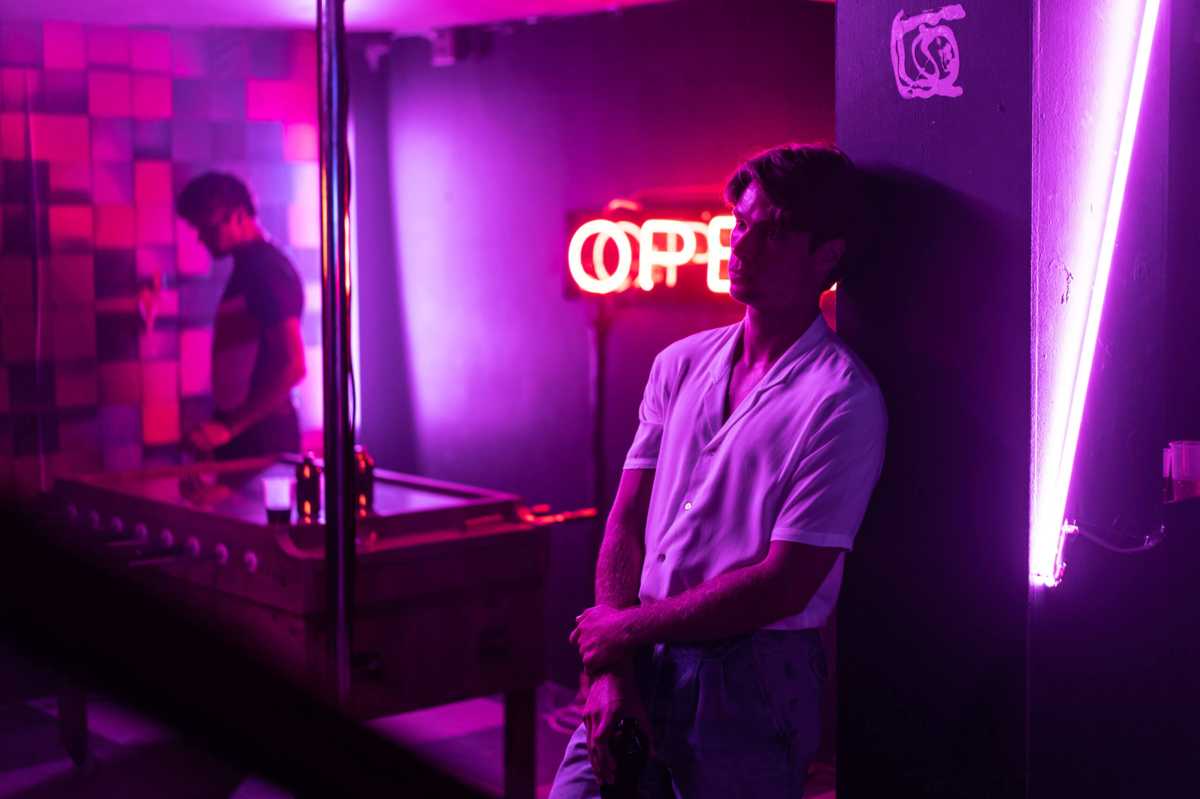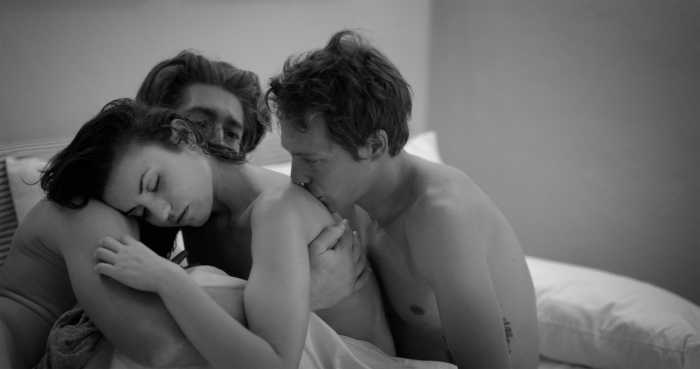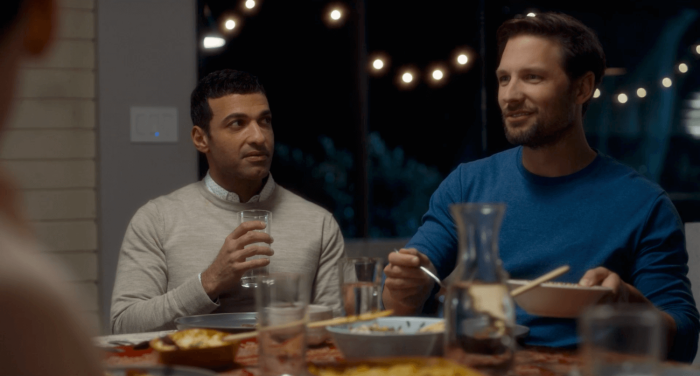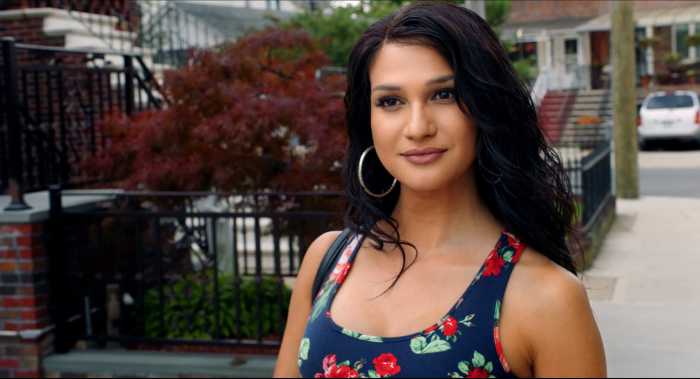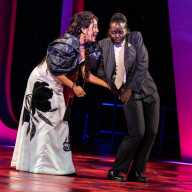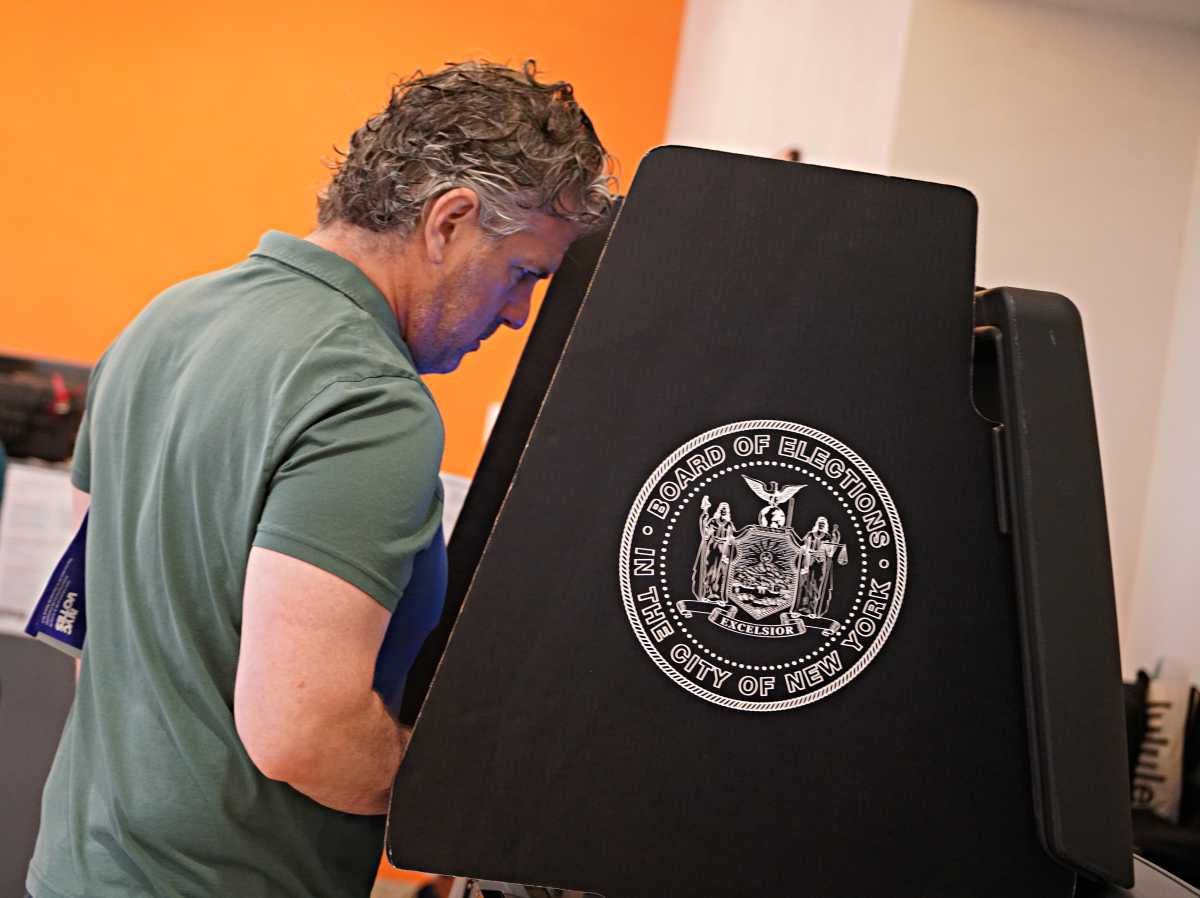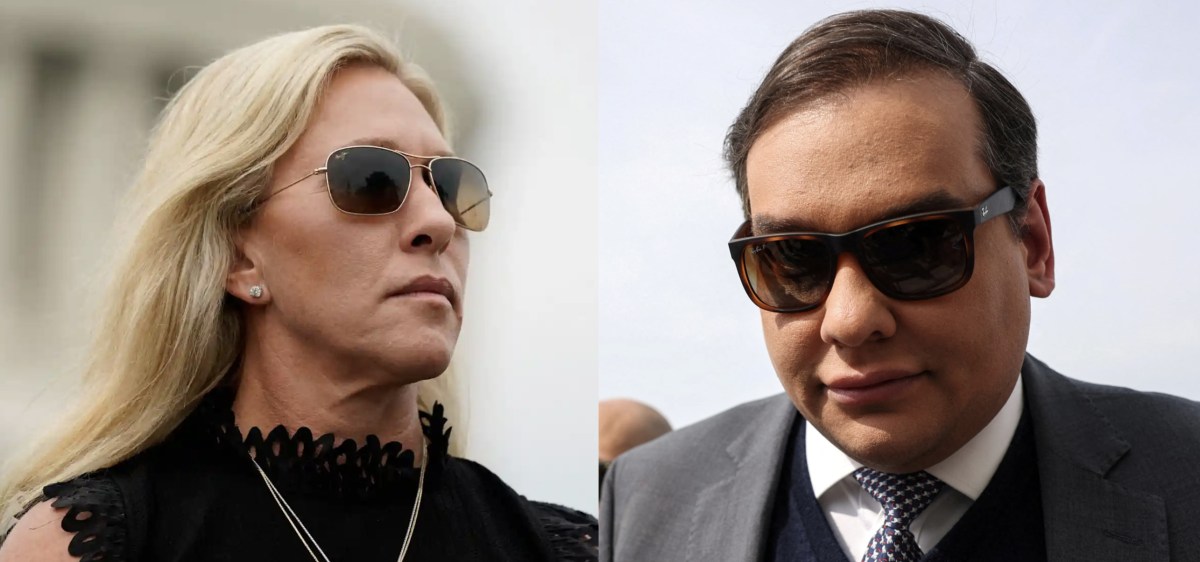The South African drama “Moffie” is constructed around the contradictions of several binaries: gay/heterosexual, white/Black, male/female, private/public. Director Oliver Hermanus’ vision owes a great deal to Stanley Kubrick’s “Full Metal Jacket.” He copies its two-part structure and one major plot point from Kubrick’s film, although this film’s thuggish drill sergeant is much blander than R. Lee Ermey. (The film is based on Andre Carl van der Merwe’s autobiographical novel, which was previously adapted into a dance piece in 2012.) But although it is sometimes painfully bleak, its yearning for escape from early ‘80s Apartheid South Africa also contains a poetic vision.
“Moffie” begins with 18-year-old Nick (Kai Luke Brummer) saying goodbye to his family as he has just been drafted into the South African army. (All white boys and men over 16 were required to serve for two years at the time.) Beset by a brutal drill sergeant reeling off endless slurs and profanity (Hilton Pelser), as well as a conflation of Blackness and communists invading the country, he endures boot camp. One night after digging ditches in the rain, he shares a tender moment with Dylan Stassen (Ryan de Villiers), and they cuddle and caress. But Nick has to stay in the closet in order not to be sent to a mental hospital. Violence lurks at the edge of his boot camp, and after a brief trip to a disco and visit back home, he is sent to fight in Angola.
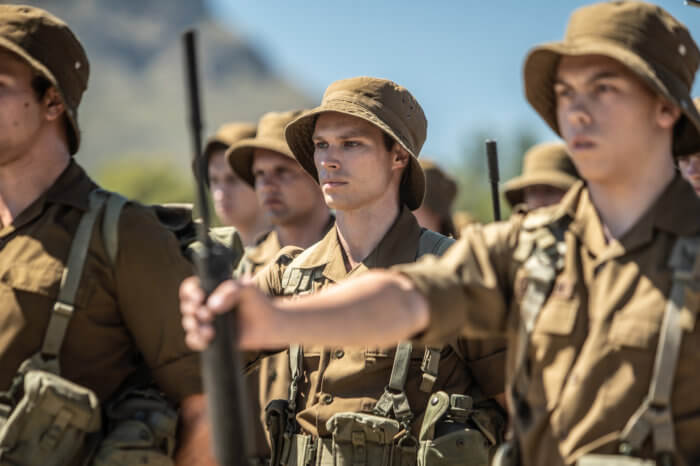
The world of “Moffie” is so internalized that the dialogue doesn’t seem to matter much. Shortly after an “eight months later” intertitle appears, the camera starts zooming in towards a bathroom sink. The bathroom is a place that brings out the secret energies of this group of soldiers. Nick furtively masturbates alone in a toilet stall, only to leave it and have another boy comment about how often how he plays with himself. He has a flashback to a childhood memory of his first recollection of his gayness, when he was punished for looking at nude boys in the shower. While his father encourages the heterosexual libido he thinks Nick has by sending him off to the army with a porn mag featuring cover star “Miss Wonder Boobs” to “use as ammunition,” his true desires are both suppressed and everywhere in the open.
Because gayness was forbidden in the South African army at the time, the soldiers seem shockingly unconscious of how homoerotic their behavior is. Of course, Hermanus’ direction plays this up, with the obligatory scenes lingering on the torsos of nude 18-year-old men showering together. But they also talk about picking up girls while playing volleyball outside with their shirts off. For all this macho bluster, almost no female presence exists in their world. One could play a drinking game based on the number of time slurs are used in the dialogue, especially the film’s title (which the English subtitles translate as “faggot”), but it plays as compensation for the fact that the soldiers can’t act out the heterosexual sex they constantly brag about and all the homophobia in the world can’t rid their sexually charged, all-male environment of the presence of actual same-sex desire.
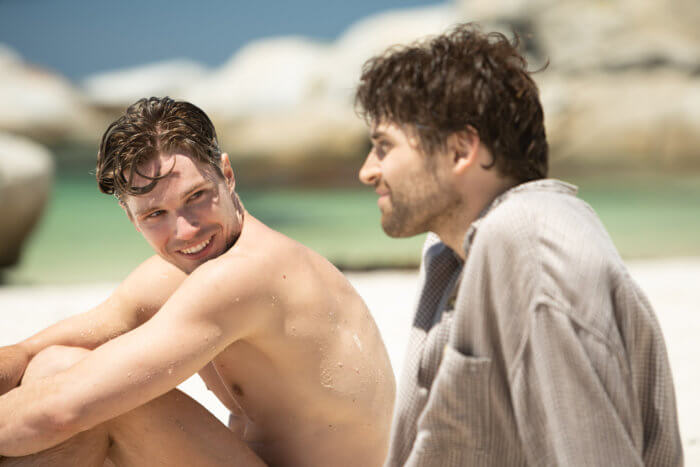
Could all that anxiety dissolve in water? Much of the film takes place around various forms of it, whether they be showers or lakes. Drying off from rain provides the pretext for Nick and Strassen to get physically close to each other. But Nick also imagines himself floating in blood-filled water.
The desolate landscape of the second half, when the soldiers are finally pressed to war, is quite a contrast. Hermanus frames the African landscape in long shots, which bring out both beauty and a melancholy ache. For all the explicit racism of an early scene where young men torment a Black man they see from a train window and the dialogue, the soldiers mostly seem confused by their time in Angola. While their whiteness obviously puts them in a privileged position in South Africa, it also means that the government could exploit them as cannon fodder to further its racism. “Moffie” shows a coming-of-age more endured than simply lived, in a world where enormous political repression leads to emotional and sexual lockdown.
“MOFFIE” | Directed by Oliver Hermanus IFC Films In Afrikaans with English subtitles Opens Apr. 9th at the IFC Center
To sign up for the Gay City News email newsletter, visit gaycitynews.com/newsletter.

